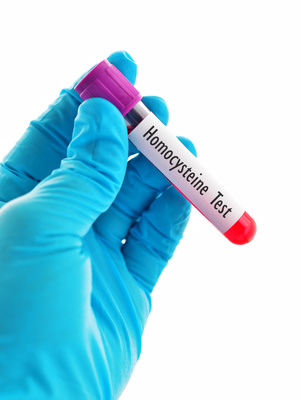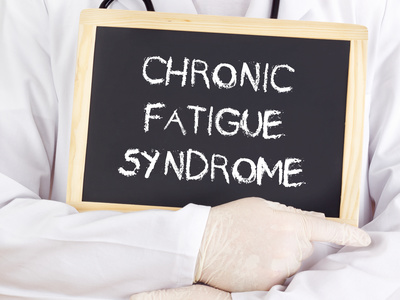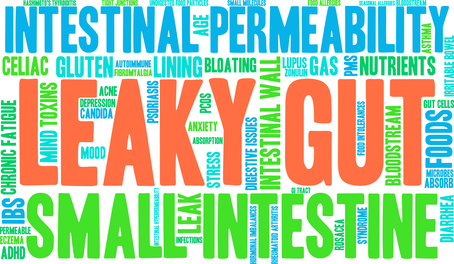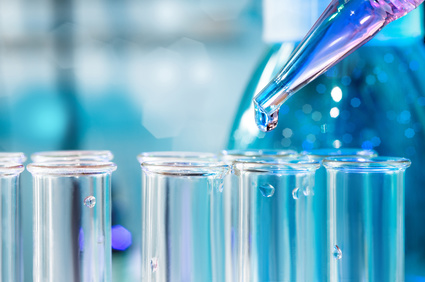NOTE: This test is ONLY AVAILABLE TO AUSTRALIAN RESIDENTS.
The Homocysteine Levels Test
Have you checked your homocysteine level? Your life may depend on it, as 1 out of every 2 people have high homocysteine levels!
Homocysteine is the chemical that is released into the body as a result of a process called methylation. It’s a normal process as long as the homocysteine your body produces is broken down into other useful, health-giving chemicals.
When homocysteine becomes elevated, this is a warning sign that can result in any of the following:
Alzheimer’s disease
Cardiovascular disease mortality
Chronic heart failure
Heart attack
Cerebrovascular and peripheral vascular disease
Stroke
Cancer
Diabetes
Death
Methylation imbalances
Knowing your homocysteine levels can mean the difference between life and death, literally. It’s also important to understand that by simply keeping your homocysteine in check, you can dramatically decrease your risk of many of the above health problems by as much as 50%.
About The Homocysteine Levels Test
After you purchase the homocysteine levels test, you will receive a simple blood test kit in the mail. The test kit comes with:
An authorized blood specimen order form that you take to your local accredited pathology for collection of your blood (Find a pathology near you here).
A blood specimen test kit for the pathology to use to collect your blood sample
Complete instructions for taking the test for you and the pathology
Test results are sent to one of our professional health practitioners within 7 business days for evaluation. Our practitioners contact you with the results and recommendations on any findings via email, mail or phone.
What Causes High or Elevated Homocysteine and Cardiovascular Disease?
Homocysteine in the body is produced from processing methionine, a natural amino acid, through methionine metabolism. Normally, homocysteine is broken down into two healthy beneficial chemicals called SAMe and glutathione, which solves the problem of having high or elevated homocysteine.
Several factors can cause elevated homocysteine, these include:
Poor diet
Nutritional problems
Stress
Genetic inheritance. e.g. Family history of any of the above diseases
Folate deficiency
Male sex (increased risk)
Oestrogen deficiency
Excessive alcohol, coffee or tea intake
Smoking
Lack of exercise
Hostility and repressed anger
Inflammatory bowel disease (ulcerative colitis, coeliac disease, Chron’s disease)
Pregnancy
Being vegetarian or vegan
High salt intake
Hat fat diet with excessive red meat, high fat dairy intake
How Homocysteine Works and the Role of Folic Acid
In the below diagram you can see the processes that break down homocysteine into SAMe and glutathione, any problems with either pathway leads to elevated or high levels of homocysteine. Homocysteine is one of the sulfur-containing amino acids produced during the metabolism of methionine.
Have any questions about this test? Ask one of our qualified health practitioners here.
Understanding Homocysteine
Homocysteine is a naturally occurring amino acid in the body, specifically a sulphur-containing amino acid. It plays a vital role in various bodily functions, particularly in the metabolism of methionine, an essential amino acid. However, when homocysteine levels become elevated, it can pose significant health risks.
Elevated homocysteine levels are a known risk factor for several serious health conditions, including cardiovascular disease, coronary artery disease, and peripheral vascular disease. Understanding how homocysteine works and the factors that can lead to elevated levels is crucial for maintaining good health and preventing these conditions.
What is Homocysteine and Its Risks
Homocysteine is a sulphur-containing amino acid that plays a crucial role in various bodily functions. Elevated homocysteine levels have been linked to an increased risk of cardiovascular disease, coronary artery disease, and peripheral vascular disease. Homocysteine is formed from the essential amino acid methionine, and its metabolism is dependent on folic acid, vitamin B12, and other B vitamins.
When homocysteine levels are elevated, it can damage the lining of blood vessels, leading to blood vessel blockages and increasing the risk of heart attack, stroke, and pulmonary embolism. Excess homocysteine can also promote atherosclerosis, a condition characterized by the buildup of plaque in the arteries, which can lead to cardiovascular disease.
Maintaining healthy homocysteine levels is essential for preventing these serious health issues. Ensuring an adequate intake of folic acid, vitamin B12, and other B vitamins can help support proper homocysteine metabolism and reduce the risk of elevated levels. Regular monitoring through a homocysteine test can provide valuable insights into your cardiovascular health and help you take proactive steps to protect your well-being.





